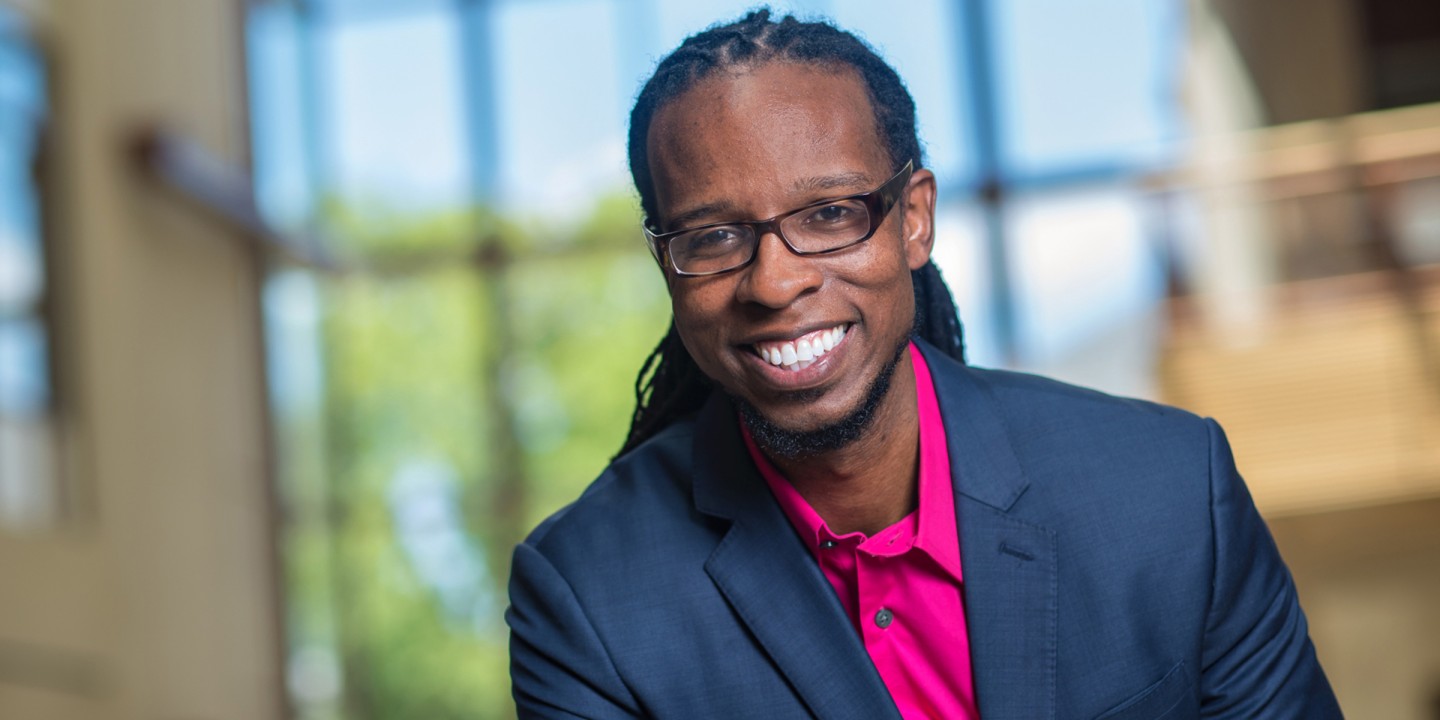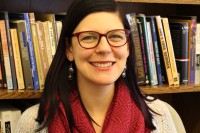Antiracism is everyone’s work
“No one is born with racist ideas. People consume them, as others produce them to justify racist policies.”

Ibram X. Kendi won the National Book Award in 2016 for Stamped from the Beginning: The Definitive History of Racist Ideas in America. He is the founding director of the Antiracist Research and Policy Center at American University in Washington, D.C., where he is professor of history and international relations. His memoir How to Be an Antiracist will be published this summer.
You’ve defined a racist idea as one that suggests a racial group is superior or inferior in any way to another racial group. And you’ve written that even figures such as Sojourner Truth, Frederick Douglass, and Barack Obama sometimes have espoused racist ideas, such as when Obama said African Americans needed “a new set of attitudes.” Can racist ideas infect even those fighting racism?
Read our latest issue or browse back issues.
Yes, because there are Americans who are against racial policy but simultaneously think that black people, or another racial group of people, are in some ways culturally or behaviorally inferior. One of the more popular racist ideas among those fighting against racism is the idea that racism has made black people inferior, or what I call the oppression-inferiority thesis. The idea is that slavery and segregation and poverty did not just treat black people as less than but made them into less than and that oppression has devastated black attitudes and we need a new set of attitudes.
Was there a moment or experience in your life that shaped your thinking on these dynamics?
The election of 2000. I was a freshman at Florida A&M University. It was my first time voting. Many of my peers had experienced—or heard of family members and friends who experienced—being denied the ability to vote or having their votes spoiled. George W. Bush won the presidential election in Florida by a couple hundred votes, and thousands of black votes were thrown out. Coming to grips with voter suppression really opened me up to the racism that was so persistent in America.
You argue that racial discrimination has led to racist ideas, which leads to ignorance and hate, rather than the other way around. Does that mean, conversely, that changing a policy will change ideas or attitudes?
Eliminating a racist policy can stop the production of racist ideas. No one is born with racist ideas. They consume them, as other people produce them to justify the racist policies that benefit them.
What are the discriminatory policies most affecting U.S. society today?
The policies that lead to health disparities and to a far greater number of black people dying from particular illnesses. Some of those racist policies have to do with the lack of affordable health care for people of color in contrast to the resources dedicated to incarcerating people or policing people.
And, of course, the policies that lead to black people and Latinos making up about two-thirds of the incarcerated population even though together we make up about a third of the national population. There are people sitting in prison simply because they committed a crime—or did not commit a crime—in a black or poor or Latino neighborhood. If they would have smoked that marijuana in a richer, whiter neighborhood, they would not have been arrested and incarcerated.
How does the Antiracist Research and Policy Center address those policies?
We will be identifying racial disparities—for example, in the infant mortality rates in D.C., which are greater than the national average—figuring out the racist policies behind those disparities, innovating antiracist policies that can reduce those disparities, and working with sympathetic policy makers to get those antiracist policies implemented.
How did growing up with parents who were both pastors in the African Methodist Episcopal Church shape your ideas?
My parents met and in many ways bonded over the black theology movement in the late 1960s and early 1970s, a movement imagining Christianity and the church as liberatory agents. They were part of that movement that imagined Jesus as a revolutionary. By the time I came around in the early 1980s, they still viewed themselves and their ministry as something that should be a force challenging the status quo of racial inequality.
How would you describe your relationship to black liberation theology?
I have a tremendous amount of respect for liberation theology. I can’t think of Christian ideas outside of liberation theology. I am more inclined to listen to preachers and theologians who imagine Christianity as a force of liberation—not just for black people but all people—as opposed to a Christianity that defends the status quo of bigotry and inequality, or that is used to oppress people. As a historian, I’ve chronicled how Christianity has been used both to enslave people and to free people. I line up alongside those who believe their God is a God of liberation.
How can congregational leaders best cultivate antiracist thinking and action?
Ministers and church leaders can serve as teachers of antiracism in the same way they serve as teachers about scripture. Figuring out ways to integrate both into ministry is crucial. The civil rights movement largely used churches as places of mobilizing or places of refuge, so the space of the church can be open to local groups fighting against racism. Churches can raise money to support organizations that are challenging racist policies.
Are racist ideas more or less a constant anthropological feature or can humanity someday be fully rid of them?
Racist ideas are a relatively new phenomenon in the history of humanity and only have a roughly 500-year history. For thousands and thousands of years human beings did not divide people along racial lines and rank people. For the better part of humanity we lived without racist ideas. I certainly believe that there could come a time when we are no longer living with racist ideas. But we’re not going to get there by ignoring the racial inequality. The only way we can get to that moment is by adopting antiracist ideas.
A version of this article appears in the print edition under the title “Antiracism for everyone.”







